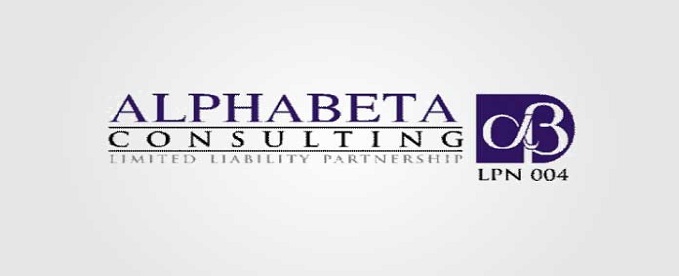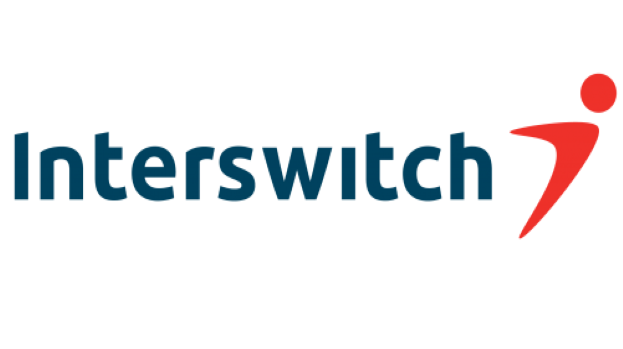E-Business
Ex-MD of Alpha-Beta Alleges Fraud, Tax Evasion as Court Summons Tinubu

Oladapo Apara, former managing director of Alpha-Beta Consulting, has filed lawsuit alleging that the company has been diverting billions of naira from the coffers of the Lagos state government since 2002.

Asiwaju Bola Ahmed Tinubu
This is coming as Bola Ahmed Tinubu, former governor of Lagos State, has been slammed with a law suit directing him to appear before the Lagos High Court within 42 days.
The writ of summons with no LD/7330GCMW/2020 deposed to at a Lagos high court on October 2, 2020 also alleged money laundering, tax evasion, forgery and a number of corporate fraudulent practices on the part of the company and its owners.
However, an official of Alpha-Beta who spoke with TheCable said the company was yet to be served the writ.
In a series of tweets in 2018, Apara had also alleged that Alpha-Beta had, using technology, generated N1.5 trillion from 2002-2018 for the state government.
He said the company earned 10 percent as commission and did not pay taxes.
In the writ of summons, Apara claimed that in 2000, he gave a proposal to Bola Tinubu, a national leader of the All Progressives Congress (APC) who was governor of Lagos from 1999 to 2007.
The idea was how to use better technology to track the state’s internally generated revenue (IGR).
Tinubu allegedly demanded that a 70 percent equity interest be assigned to Olumide Ogunmola and Adegboyega Oyetola, two people said to be his associates.
In the final sharing arrangement, Apara claimed Ogunmola was allotted 40 percent and Oyetola, who became governor of Osun state in 2018, was given 30 percent of the 70 percent allegedly demanded by Tinubu.
On the directive of Tinubu, Oyetola’s 30 percent, Apara further alleged, was transferred to one Tunde Badejo.
Following the agreement on all sides, Apara said he became a signatory to all the bank accounts, alongside the two shareholders whom Apara claimed were simply “holding trust for Tinubu”.
“After incorporation of Alpha-Beta Consulting Limited in 2002 and structured according to the dictates of the 2nd defendant (Bola Ahmed Tinubu), the 2nd defendant in his official capacity as the governor of Lagos state then approved that Alpha-Beta Consulting Ltd be awarded consultancy contract for the assessment and collection on behalf of the Lagos state government, all taxes and internally generated revenue (IGR) due and payable to the state at a 10% consultancy fee (subject to a benchmark which varies from time to time,” he said in court papers seen by TheCable.
APARA KICKED OUT
In 2010, three years after Tinubu had completed two terms as Lagos governor, Apara said the former governor directed that the incorporation structure of the company be changed from a limited liability company to a limited liability partnership under a newly promulgated Lagos law.
Tinubu, Apara said, had told him that the purpose of the change “was to further shield his (Tinubu) involvement in Alpha-Beta Consulting Ltd from public scrutiny”.
Subsequently, the limited liability partnership then took over the Lagos contract previously awarded to Alpha-Beta Consulting Limited.
Trouble began for Apara in 2014 when Tinubu allegedly directed that Ogunmola become the managing partner of the company and Apara as deputy managing partner.
The battle between Apara and Ogunmola went on till 2016 when Tinubu allegedly stopped Apara from reviewing the financial records of the company.
Tinubu then brought in Akin Doherty as managing director who took over and asked Apara to stay away from the company’s finances, Apare alleged.
Apara also alleged that Tinubu warned him not to think of exposing his involvement in the financial affairs of the company to the Economic and Financial Crimes Commission (EFCC) as Ibrahim Magu, the now suspended chairman of the anti-graft agency, “will always” protect him.
The accountant also accused Tinubu of threatening to use Lagos government agencies to harass and seize his assets.
‘ILLEGALLY OPERATING ALPHA-BETA BANK ACCOUNTS’
From 2018, Apara said, Tinubu, Badejo and Doherty colluded to operate Alpha-Beta bank accounts without his involvement as one of the signatories.
He said at one point, he suspected that his signature was forged to enable Tinubu and the others to operate the company’s accounts without him.
Despite the huge income made by Alpha-Beta since 2010, Apara claimed that to date, Badejo and Doherty, acting under Tinubu’s directive, “breached clause 8 of the partnership agreement and denied” him his share of the profit from the partnership as provided in the agreement.
He further averred: “Tunde Badejo, Michael Olumide Ogunmola and Akin Doherty have colluded and conspired to run the affairs of the business in a manner designed to bankrupt the 1st defendant through suspicious monetary transfers to third parties running into billions of naira contrary to the partnership agreement.
“The account review revealed large scale fraudulent transactions some of which are stated above and diversion of Alpha-Beta funds running into billions of naira by Tinubu.
“During the review of the account records of the company, huge sums of money that Alpha-Beta earned over the years was not reflected in the accounts of the company.”
Apara alleged that since 2014, the company has not kept proper financial records.
He said Badejo, when confronted, admitted that “the funds of the company have been mismanaged over the years including diversion funds for purported joint ventures purposes at the direction of and for the benefit of Tinubu”.
Apara, in the suit, among other prayers, asked the court to grant an order to trace all funds and assets due to him.
In a petition to the EFCC in 2018, Apara had accused Tinubu of using the company for money laundering and had diverted about N100 billion.
E-Business
AfDB, UNDP Launch $10Bn AI Initiative for Africa

The African Development Bank Group (AfDB) and the United Nations Development Programme (UNDP) have launched an ambitious $10 billion project to support the adoption of Artificial Intelligence (AI) across the continent.

The 10 Billion Initiative intends to accelerate ethical AI adoption and inclusive digital economic growth in Africa.
The initiative follows the Nairobi AI Forum, which took place earlier this month in Kenya and brought together governments, private sector leaders, development partners, and tech innovators to define pathways for impactful AI adoption.
According to the organisations, the strategy is a co-designed collaboration between the Bank Group, UNDP, and commercial partners that aims to raise up to $10 billion by 2035.
The resources will be used to create up to 40 million new jobs across the continent by 2035, through targeted investments that provide the groundwork for AI and accelerate widespread adoption in everything from entrepreneurship and regional data infrastructure to policy frameworks and skill development.
Nicholas Williams, AfDB Group ICT operations division manager, commented: “As a leading multilateral development institution, the bank is leveraging its comparative advantage to ensure Africa is not left behind in the AI era.
“The AI 10 Billion Initiative paves the way for expanded partnerships and sustained investments that will accelerate AI entrepreneurship, strengthen data and infrastructure ecosystems, and support inclusive growth across the continent.”
E-Business
Firm Identifies RenEngine Loader Distributed Through Pirated Games and Software

Kaspersky Threat Research has revealed its analysis of RenEngine, a malware loader that has recently gained public attention. Kaspersky identified RenEngine samples as early as March 2025, with its solutions already protecting users from the threat at that time.

Beyond the cracked games highlighted in recent reports, Kaspersky researchers discovered that attackers created dozens of websites distributing RenEngine through pirated software, including graphics editors like CorelDRAW. This expands the known attack surface beyond the gaming community to anyone seeking unlicensed software.
Kaspersky has recorded incidents in Russia, Brazil, Turkey, Spain and Germany, among other countries. The distribution pattern indicates opportunistic attacks rather than targeted operations.
When Kaspersky first identified RenEngine, the loader was delivering the Lumma stealer. Current attacks distribute ACR Stealer as the final payload, and Vidar stealer has also been observed in some infection chains.
The campaign exploits modified versions of games built on the Ren’Py visual novel engine. When users launch infected installers, a fake loading screen appears while malicious scripts execute in the background. The scripts include sandbox detection capabilities and decrypt a payload that initiates a multi-stage infection chain using HijackLoader, a modular malware delivery tool.
“This threat extends beyond pirated games — attackers are using the same technique to distribute malware through cracked productivity software, which broadens the potential victim pool significantly,” said Pavel Sinenko, lead malware analyst at Kaspersky Threat Research. “Game archive formats vary by engine and title. If an engine doesn’t check the integrity of its resources, attackers can embed malware that executes the moment you click play.”
Kaspersky solutions detect RenEngine as Trojan.Python.Agent.nb and HEUR:Trojan.Python.Agent.gen. HijackLoader is detected as Trojan.Win32.Penguish and Trojan.Win32.DllHijacker.
E-Business
Interswitch Partners Abia to Digitise Public Hospitals

Interswitch, a technology company, through its health-tech subsidiary, Interswitch eClat, has taken a major step in advancing Nigeria’s public-sector health digitisation agenda following the conclusion of a high-level stakeholders’ engagement with the Abia State Government.

The engagement took place ahead of the phased deployment of eClinic, Interswitch eClat’s Electronic Medical Records platform, across public health facilities in the state, the firm stated in a statement on Friday.
The engagement, convened by the Abia State Ministry of Health in collaboration with Interswitch and held at the State’s Ministry of Health in Umuahia, brought together senior government officials, health administrators, Interswitch representatives, and key ecosystem stakeholders to align on the scope, implementation framework, and expected outcomes of the proposed eClinic deployment.
The initiative reflects a shared commitment to leveraging digital infrastructure to improve healthcare delivery, operational efficiency, and patient outcomes across Abia State’s public health system.
Discussions focused on deploying Interswitch’s eClinic solution in alignment with Abia State’s broader healthcare reform agenda under the current administration, particularly the transition from fragmented, paper-based systems to secure, interoperable digital platforms across public health facilities.
The proposed kick-off phase will span six public health facilities, including three primary healthcare centres, two secondary facilities, and one tertiary hospital, creating an end-to-end digital care pathway that strengthens patient referrals, supports continuity of care, and enables data-driven decision-making across all levels of service delivery.
The EMR solution is built to reduce patient waiting times, strengthen referral processes, and ensure the secure handling of both clinical and administrative data, supported by a hybrid infrastructure that enables local hosting with cloud-based backup.
Speaking at the engagement, Prof Enoch Uche, the Commissioner for Health, Abia State, described the initiative as a major milestone in the state’s healthcare transformation journey and highlighted the importance of private-sector collaboration in achieving sustainable impact.
“The Ministry of Health in Abia State is excited about the digitisation of health facilities, starting with Interswitch’s eClinic pilot phase involving three primary, two secondary, and one tertiary health centre. This initiative will enhance efficiency, accountability, and patient care by linking records across different levels of care.
“Global evidence shows that digital health improves access, reduces the cost of care, and maximises human resources while personalising services for our people. This partnership with Interswitch represents a key deliverable for this administration and aligns with the Governor’s vision for a modern, technology-driven health system,” he said.
During technical sessions led by Babatunde Fadeyi, Vice President, Health Ecosystem (Public Sector), Interswitch, stakeholders were taken through the core capabilities of Interswitch’s eClinic platform.
These include secure patient record management, ICD-11–compliant diagnosis coding, controlled data update protocols, and integrated billing and reporting tools designed to improve efficiency and accountability across health facilities.
Stakeholders were also briefed on the platform’s governance framework, risk mitigation approach, and phased implementation roadmap. Commenting on the engagement, Fadeyi reaffirmed Interswitch’s commitment to delivering measurable impact through technology-enabled healthcare systems.
“Abia State has demonstrated a strong commitment to innovation and system reform. The alignment of the state’s healthcare priorities with national health digitisation objectives creates a solid foundation for meaningful progress. Interswitch’s eClinic platform is designed to improve hospital operations by automating workflows, securing patient data, and providing healthcare managers with reliable insights to guide decisions.
“Beyond improving patient experience, it supports stronger revenue tracking, operational efficiency, and accountability. Our focus is to ensure the success of this pilot phase and deliver tangible improvements across productivity, service delivery, and patient satisfaction,” he said.
Also speaking at the engagement, Dr Ifeyinwa Blossom Uma-Kalu, the Permanent Secretary of the Ministry of Health, Abia State, highlighted the operational and clinical value of Interswitch’s eClinic initiative, particularly in strengthening referrals, improving revenue management, and expanding access to specialist care.
“This digitisation initiative will help us track our finances and internally generated revenue more accurately while reducing leakages. More importantly, it strengthens our referral system by allowing patient records to move seamlessly from primary to secondary and tertiary care.
“With a digital framework, healthcare workers in remote communities can access specialist support through telemedicine, helping to save lives and improve outcomes. This is a critical tool in our efforts to reduce maternal and infant mortality, and we are eager to see the outcomes of Interswitch’s eClinic,” she noted.
The engagement also addressed key success factors for the project, including power stability, user training, change management, and inter-agency collaboration, with both parties emphasising sustainability and scalability as the project progresses.

 General News3 days ago
General News3 days agoZinox Technologies and TD Africa Forge Strategic Partnership to Revolutionize African Tech Ecosystem

 Telecom3 days ago
Telecom3 days agoUwaje Pays Tribute to Leo Stan Ekeh @70

 Telecom2 days ago
Telecom2 days agoCyber Immunity Emerges as Shield for Nigerians Amid Rising Scams

 E-Financial2 days ago
E-Financial2 days ago$214Bn Missing, Institutions Silent: Is Accountability Dead in Nigeria?

 E-Business2 days ago
E-Business2 days agoInterswitch Partners Abia to Digitise Public Hospitals

 General News2 days ago
General News2 days agoNITDA, Abia Partner on Enterprise Architecture Reform

 E-Business2 days ago
E-Business2 days agoWIEG 2026 Summit Shifts to April 22-23 for Maximum Impact

 News1 day ago
News1 day agoNITDA Urges Stronger State Partnerships as Key to Digital Economy Goals @ South-South Stakeholders Forum


























